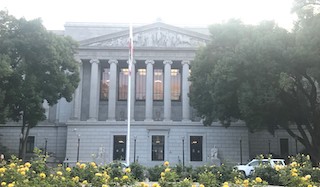It is increasingly common to see jurors who are willing to simply state that he or she believes the criminal justice system treats African Americans unfairly, so if a defendant is African American, that juror would try to avoid such unfairness. This is certainly a laudable intent, but what if that juror refuses to follow the law as instructed if the juror believes the law is unfair to African Americans?
What if the juror announces he or she is unwilling to follow the law if he or she believes it is unfair to African Americans? Can that juror serve on a jury with such beliefs?
The question became an issue in the case of Kejhonne M. Henderson, an African American, who was charged with second degree murder in Sacramento County Superior Court after he allegedly shot and killed J.P., a female, at a house party in the North Highlands section of Sacramento.
According to the testimony at trial, Henderson was upset that music of a local rapper, Mozzy, a validated member of the Fourth Avenue Bloods from Oak Park was being played at the party because it disparaged the gang Henderson affiliated with, the Del Paso Heights Bloods.
Henderson then exchanged words with the party’s host and J.P. intervened, apparently because she could see that Henderson was upset about the choice of music being played. Henderson told the party’s host, “turn that sucka shit off,” which the host did, but this did not make Henderson happy.
Henderson and J.P. then agreed to step outside to talk about the music. On their way to the door, Henderson pulled out a handgun and when they got outside, shot J.P. multiple times in the head and chest, even after J.P. fell to the ground. A total of nine rounds were shot at J.P. A.J., one of the party goers, tackled Henderson and knocked the gun out of his hand, but Henderson regained possession of the gun and shot A.J. three times before fleeing. J.P. died before paramedics arrived, but A.J. survived.
The jury found Henderson guilty of one count of second degree murder (Penal Code § 187) and one count of attempted murder (Penal Code §§ 664/187) and found true enhancements that he personally discharged a firearm causing great bodily injury or death (Penal Code § 12022.53(d)) as to each count.
The trial court judge, Stacey Eurie Boulware, then sentenced Henderson to an aggregate determinate term of seven years plus an aggregate indeterminate prison term of 66 years to life.
On appeal to the Third Appellate District Court, Henderson argued that the trial court judge prejudicially abused her discretion and violated his federal constitutional right to a jury drawn from a representative cross-section of the community by excusing two African American prospective jurors for cause because they stated in voir dire that the criminal justice system treats African Americans unfairly and were sympathetic to Henderson.
 Court of Appeal Third Appellate District Sacramento
Court of Appeal Third Appellate District Sacramento
Henderson asserted eight other grounds for appeal, but this article will keep its scope narrow and only discuss the argument that the judge improperly excused two jurors because they stated they believed the criminal justice system treated African Americans unfairly.
The Third Appellate District agreed with Henderson that the judge erred by dismissing such jurors because of such a stated belief, but the judge was correct in dismissing the jurors because they each also expressed sympathy for Henderson. In excusing the jurors for their stated sympathy for Henderson, the judge did not abuse her discretion and this excusal did not constitute a deprivation of Henderson’s constitutional right to a jury drawn from a representative cross-section of the community.
The Third Appellate District explained that a judge is correct in excusing a juror when the judge believes the juror cannot be impartial and could not decide the case solely on the evidence without regard to sympathy for defendant.
We present this article for the reader’s attention because the jurors at issue expressed a great deal of skepticism of police conduct and police officers being racially motivated. However, the facts of this case did not require jurors to evaluate the credibility of police officers and there were no racial issues. The evidence was quite overwhelming that Henderson shot both J.P. and A.J. multiple times at close range because Henderson was angry about the music being played. There were multiple witnesses to the events, so any one police officer’s testimony was of less importance than in a case, for example, where racial profiling in the arrest, a coerced confession or evidence tampering was possible.
The citation for the Third Appellate District Court ruling discussed above is People v. Kejhonne M. Henderson (3d App. Dist., 2021) 68 Cal. App. 5th 709, 283 Cal. Rptr. 3d 687.
For more information about jury selection issues, please click on the following articles:
 Court of Appeal Third Appellate District Sacramento
Court of Appeal Third Appellate District Sacramento